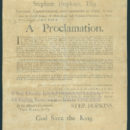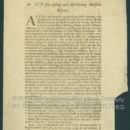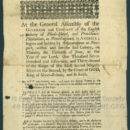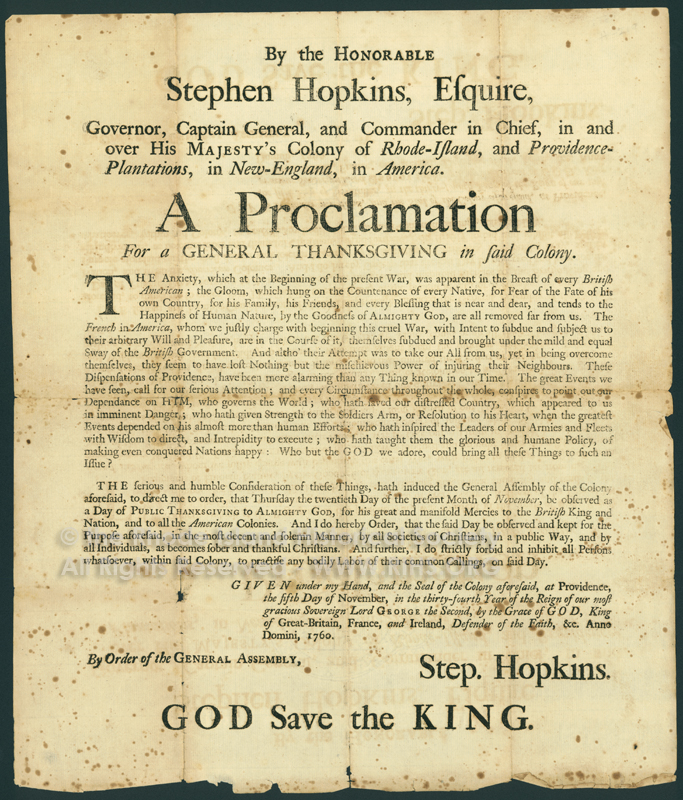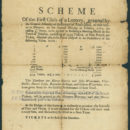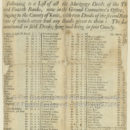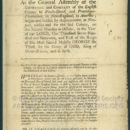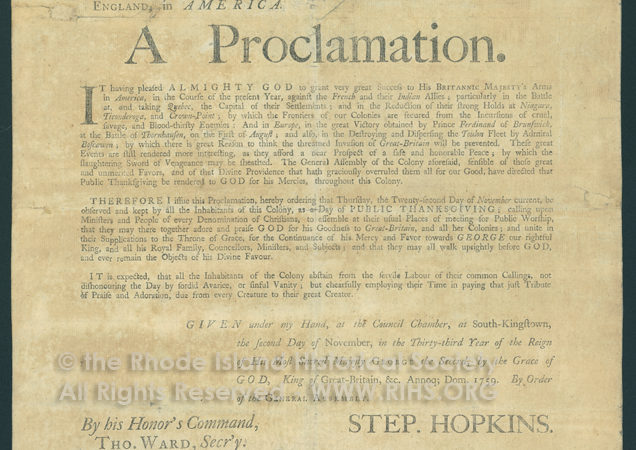
Now on display at the Robinson Research Center: A Century of Women’s Organizations in Rhode Island
A Sphere of Infinite and Indeterminate Radius: The Rhode Island Women’s Club
The Rhode Island Women’s Club (R.I.W.C.) was founded in 1876 by Elizabeth Kittredge Churchill with the idea that “the education and social advantages to be derived from an association to women banded together were many.” The R.I.W.C. held its first meeting on February 18, 1876. At the second meeting, Sarah E. Doyle was elected president, a position she held for eight years. In her published history of the organization, Doyle wrote:

“One of the most significant facts in the social history of the latter half of the nineteenth century is the influence which women are exerting through literary and philanthropic organizations. This influence, however, was not gained without effort on the part of those who dared to venture outside the circumscribed path which custom had ordained for women.”
The club brought women together to discuss and take action on socially and culturally relevant issues of the day. Members and invited speakers presented papers at meetings or held workshops and lessons. The club remained active through the early 20th century, though its numbers fell off by the late 1970s.
Social, Educational, and Recreational Opportunities: The Girls’ City Club
The Girls’ City Club (G.C.C.) of Providence was founded in 1920 out of recognition that many social and recreation spaces were available to boys and young men, but very few for young women outside of the home or school. Following in the footsteps of earlier women’s clubs established for cultural, social, and civic engagement, the G.C.C. was formed to:
“Promote good fellowship among girls, developing their social, educational, and recreational opportunities and increasing their power and opportunities for service through the medium of non-sectarian and self-governing organization.”
In 1941 the Girls’ City Club of Providence was asked to host social events for the 6th Army Corps that was stationed in the city; shortly after that, the navy arrived at Quonset Point. Without a USO in Providence, the Girls’ City Club again took up hosting duties. The club maintained a tradition of programs, dances, and outings with men serving in the military; this is evidenced by the numerous letters written to the club from men serving in World War I through Vietnam.
With dwindling membership and a meeting space designated for demolition, the club could not sustain the energy necessary to continue. On March 8, 1970 the club closed after 50 years of service.
Women’s Organizations and Clubs in Rhode Island
From charitable organizations, temperance groups, to craft and social clubs, the mid 19th century saw a surge in Women’s Organizations and Clubs that continued through the 20th. The Rhode Island Historical Society holds the records of many of these groups. Finding aids can be browsed in our Master List.
Past Blog Posts about Women’s Organizations:
A Stitch in Time: EMBREASO Club
Rhode Island Women in Action: A Force for Local Food
~Michelle Chiles, MLIS, Research Center Manager

